Introduction to Deckover Dump Trailers
Deckover dump trailers represent a unique niche in the trailer industry, seamlessly blending versatility and functionality. Their distinctive flatbed design set at or above the wheel wells delivers maximum loading area while allowing for the efficient transportation of various materials.
Key Features of Deckover Dump Trailers
- Flat Deck Design: The flat deck allows for wider loading capabilities, accommodating bulky materials such as construction debris, mulch, or machinery when necessary.
- Enhanced Load Capacity: Given their robust construction, deckover dump trailers typically support heavier loads compared to traditional dump trailers.
- Versatile Applications: Ideal for commercial contractors, landscapers, and waste management, they are adaptable to various industries needing efficient hauling solutions.
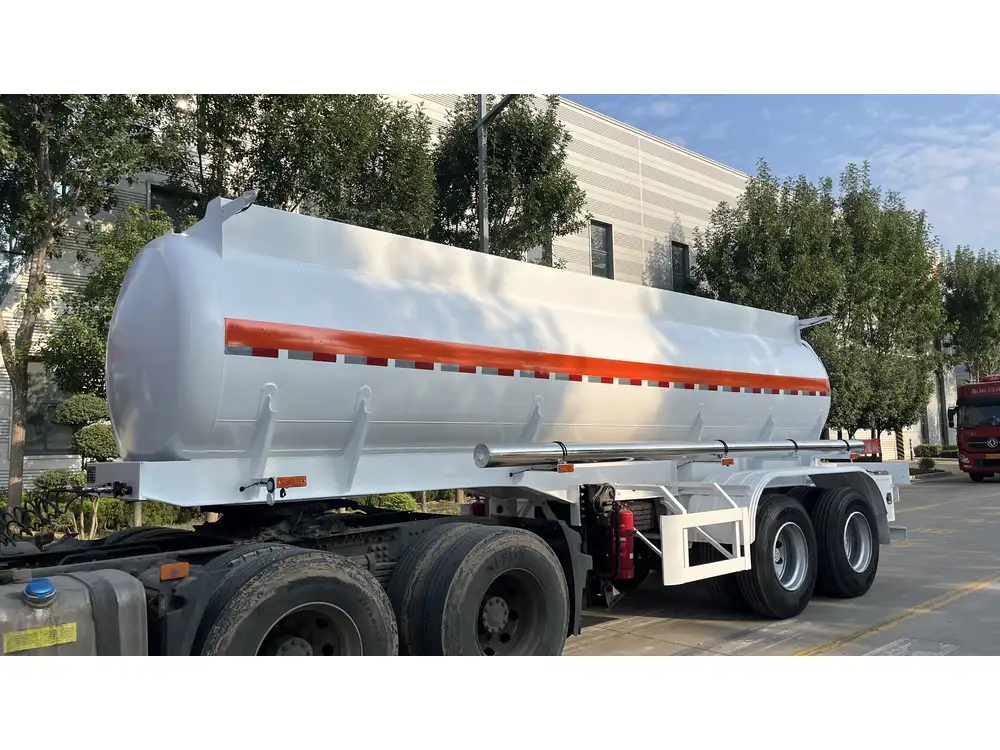
The Mechanics Behind Deckover Dump Trailers
Understanding the mechanics of deckover dump trailers can help users appreciate their design efficiency and functional versatility. Here’s a breakdown of critical components:
| Component | Functionality |
|---|---|
| Steel Frame | The foundation that provides durability and structural integrity. |
| Hydraulic System | Allows for smooth tilting of the trailer for effective loading and unloading. |
| Deck Surface | Typically built from heavy-duty steel, providing resilience against wear from heavy loads and rough materials. |
| Ramps | Optional features enabling easy loading and unloading of equipment and large materials. |
| Axles and Suspension | Engineered to distribute load evenly, enhancing stability during transport. |
Performance Specifications
When evaluating a potential deckover dump trailer purchase, consider the following specifications:
- Gross Vehicle Weight Rating (GVWR): Typically ranges from 10,000 to 20,000 pounds.
- Load Capacity: Depends on the trailer size and can often support payloads exceeding 10,000 pounds.
- Dimensions: Cab lengths from 14 feet to 30 feet, accommodating diverse hauling needs.
Benefits of Using Deckover Dump Trailers
Deckover dump trailers unveil a plethora of advantages, whether you’re a contractor, landscaper, or DIY enthusiast. Some notable benefits include:
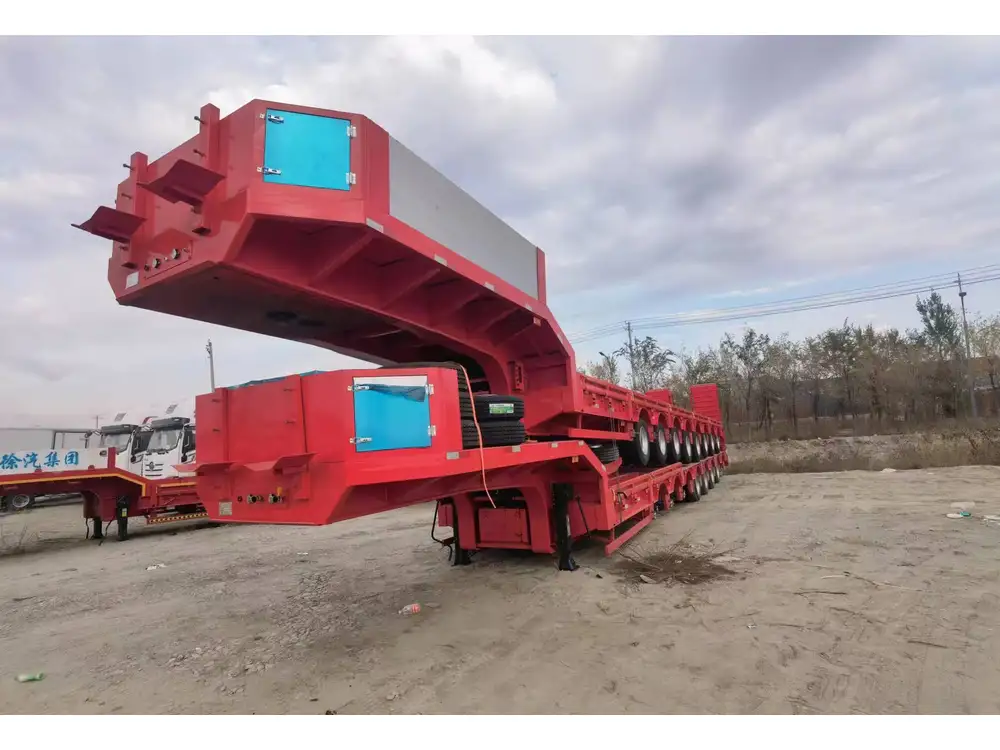
1. Increased Load Versatility
Deckover dump trailers excel in handling varied materials. Their expansive flat surface accommodates everything from heavy machinery to loose gravel. The ability to adjust load types without worrying about height restrictions is invaluable.
2. Enhanced Stability and Safety
The low center of gravity due to the design helps maintain stability while driving, especially when navigating inclines or rough terrain. This feature significantly reduces the risk of trailer swaying and enhances overall safety during transport.
3. Efficient Loading and Unloading
Hydraulic lift mechanisms allow for efficient dumping of materials. The rapid incline ensures that heavy loads can be discharged quickly, increasing operational efficiency on job sites.

4. Durability and Longevity
Most deckover dump trailers are constructed with heavy-duty materials, ensuring they withstand harsh operating conditions. A well-built trailer can last many years with proper maintenance, proving to be a lucrative investment.
Potential Challenges and Considerations
While deckover dump trailers offer numerous benefits, there are aspects users should contemplate:
1. Weight Restrictions
Exceeding the trailer’s weight capacity can lead to significant safety risks and potential legal repercussions. It’s vital to understand the specific weight allowances according to local regulations.
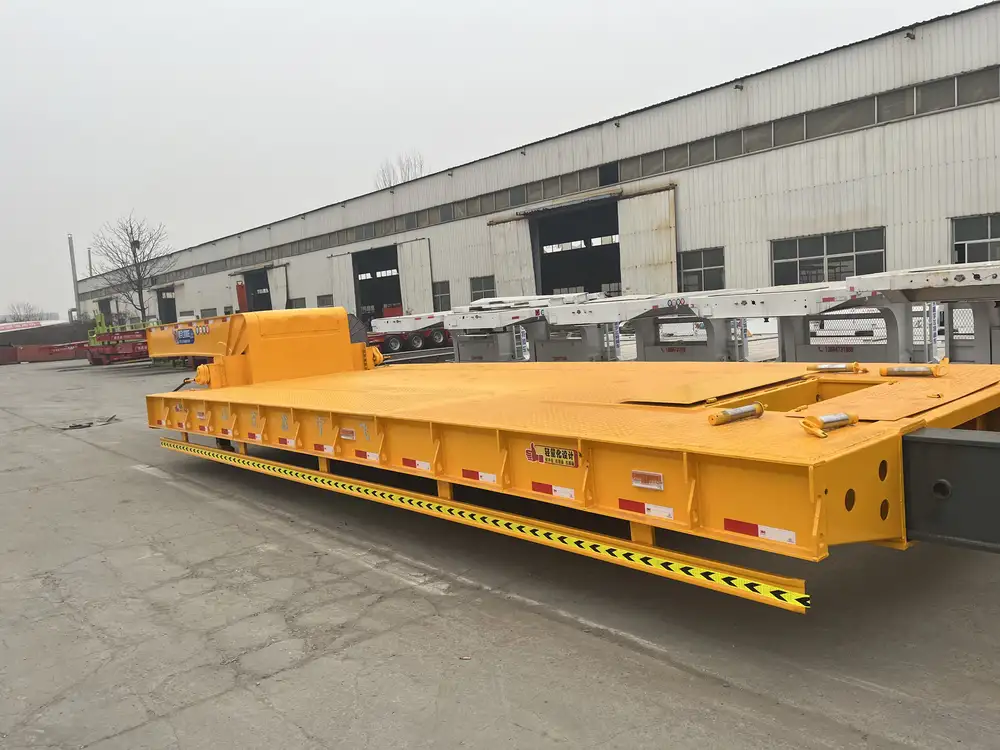
2. Maneuverability
Due to their size, deckover dump trailers can present maneuverability challenges in tight spaces or urban areas. Users should practice cautious driving, especially when backing up or navigating narrow streets.
3. Initial Cost
Although they prove valuable over time, the upfront investment in a deckover dump trailer can be substantial. Users must weigh their specific hauling requirements against their expected frequency of use to ensure economic viability.
Choosing the Right Deckover Dump Trailer
Finding the ideal deckover dump trailer necessitates a careful evaluation of your needs. Here are the steps to consider:
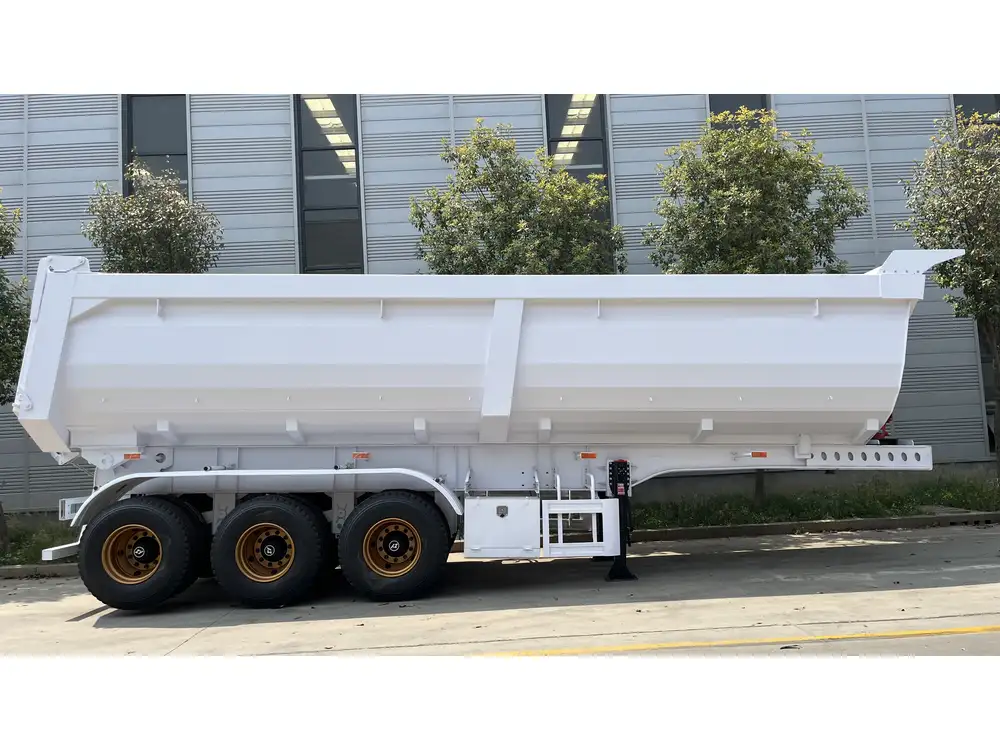
Purpose Identification
Assess your primary uses for the trailer. Will you be transporting construction materials, landscaping supplies, or large equipment? Identifying the purpose shapes your decision-making.
Size Matters
Select a trailer that matches your vehicle’s towing capacities. Check the recommended towing weight to ensure compatibility. Typically, trailers are available in various sizes ranging from 12 to 32 feet in length.
Material Preference
The construction material impacts weight, durability, and resistance to rust. Steel trailers are robust but can be susceptible to corrosion unless properly maintained. Alternatively, aluminum trailers weigh less and resist rust, albeit often at higher costs.
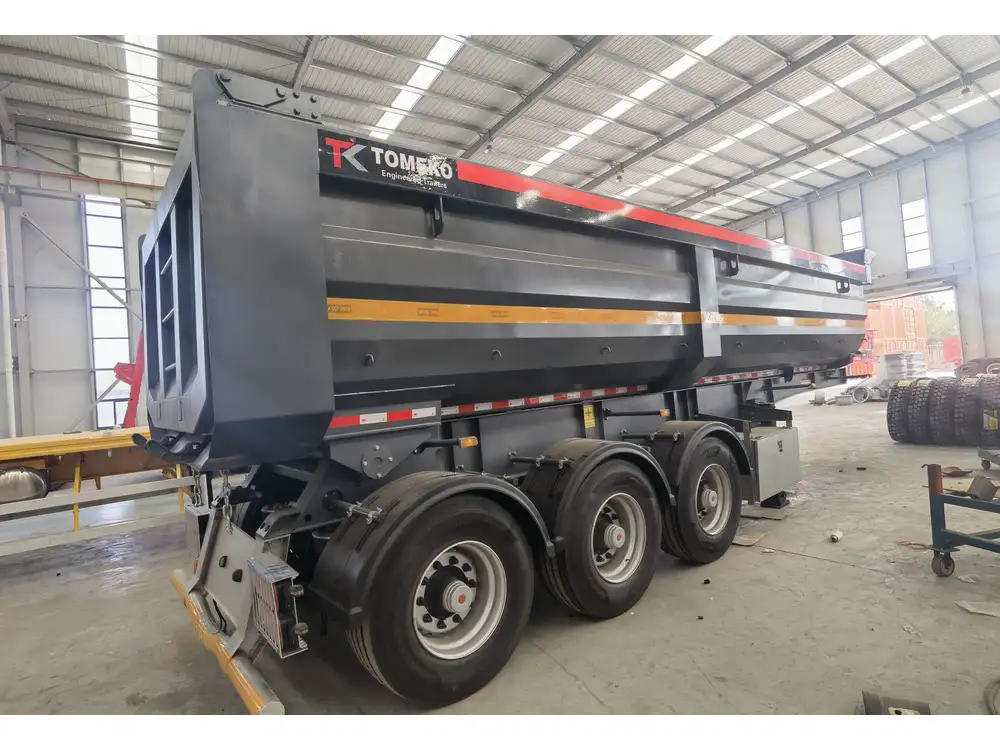
Hydraulic System Evaluation
Investigate the hydraulic systems used, as these will dictate efficiency in loading and unloading operations. Opt for a model that employs reliable hydraulic technologies for seamless operation.
Comparative Analysis of Models
| Model | Load Capacity | Length Options | Frame Material | Features |
|---|---|---|---|---|
| Model A | 10,000 lbs | 14-20 feet | Steel | Dual axle, hydraulic ramps |
| Model B | 15,000 lbs | 16-24 feet | Aluminum | Single axle, extended tongue |
| Model C | 20,000 lbs | 20-30 feet | Steel | Dual ramp, heavy-duty build |
Maintenance of Deckover Dump Trailers
Regular maintenance is critical to ensuring the longevity and functionality of deckover dump trailers. Here’s a structured approach to carrying it out effectively:
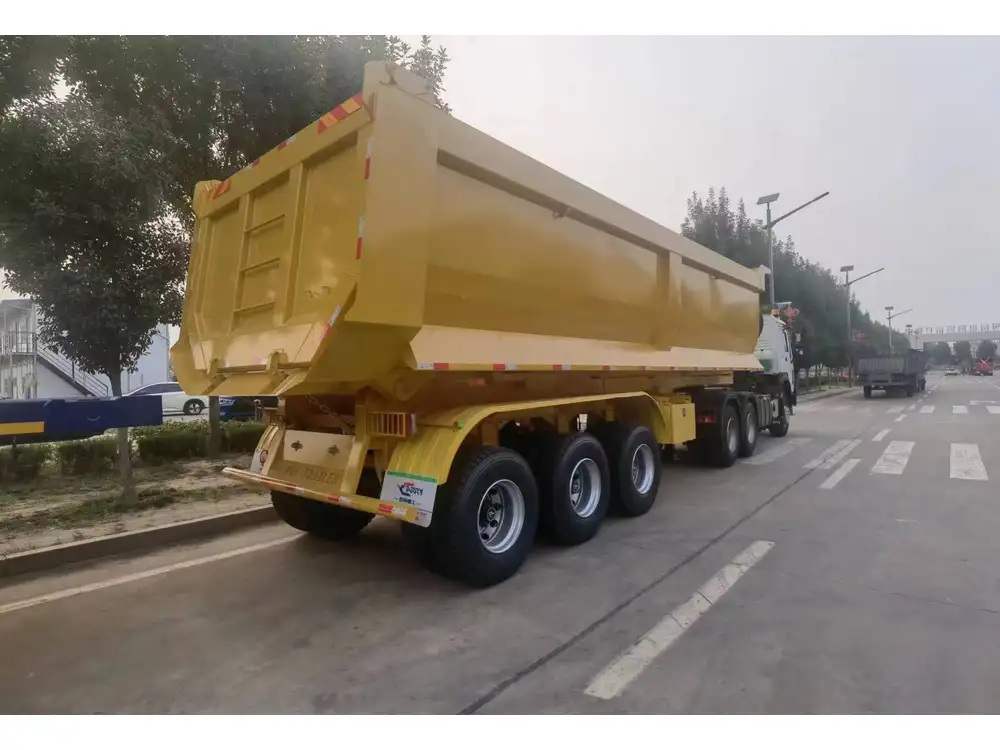
1. Routine Inspections
Conduct regular checks on:
- Brake Systems: Ensure they are responsive and wear adequately monitored.
- Tires: Inspect for wear and maintain tire pressure based on vehicle specifications.
- Hydraulic Hoses and Fittings: Look for leaks or wear to sustain efficient operation.
2. Cleaning Procedures
Post-usage cleaning can significantly affect the lifespan of your trailer. Regularly remove debris and dirt, paying special attention to the hydraulic connections that can potentially become clogged.
3. Lubrication Points
Identify all lubrication points and ensure that they’re regularly greased to prevent wear and achieve smoother operational motion.
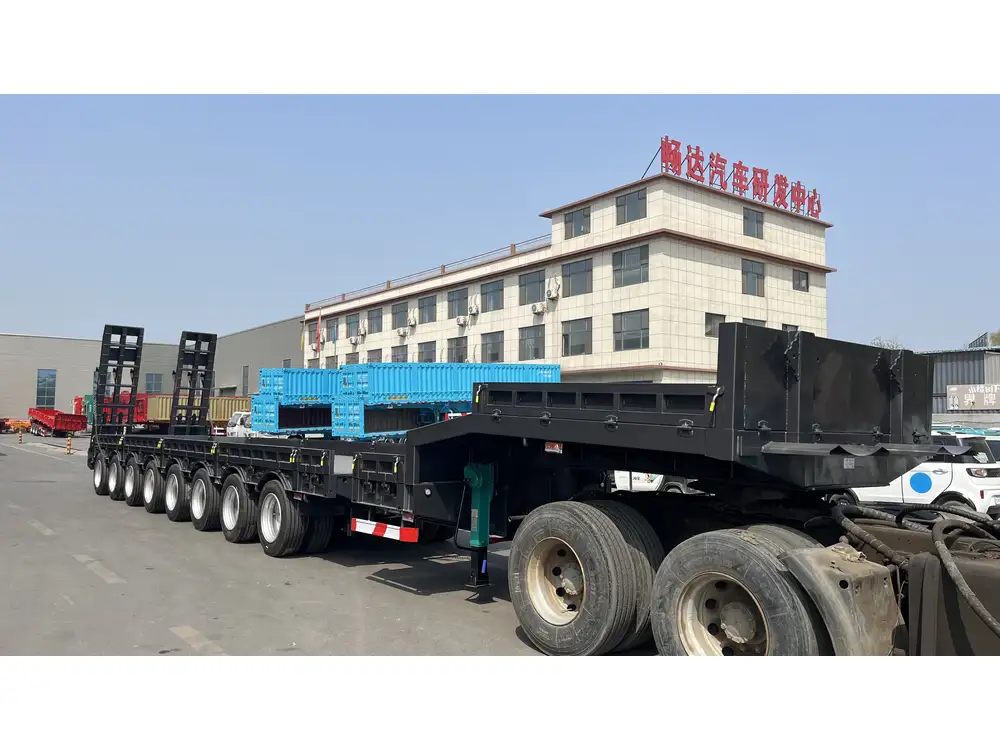
4. Seasonal Considerations
Prepare your trailer for seasonal usage. In winter months, ensure cleaning of salt and grime from road use, as they can deteriorate metal surfaces.
Conclusion
Deckover dump trailers provide a versatile, efficient, and robust solution to many hauling needs across various industries. Their unique design caters to wide loads, making them indispensable for contractors, landscapers, and employees in waste management.
While there are challenges to consider—such as weight limits, maneuverability, and cost—the myriad benefits typically outweigh these concerns. By meticulously evaluating your specific hauling requirements and performing diligent maintenance, investing in a deckover dump trailer could offer significant operational advantages for years to come.
Final Considerations
In your quest for the ideal trailer, remember to navigate through models thoughtfully while considering maintenance and user needs. With the right deckover dump trailer, your operations can witness remarkable efficiencies, elevating productivity and reliability in your projects. Explore, invest wisely, and enjoy the enhancements to your hauling capabilities.



